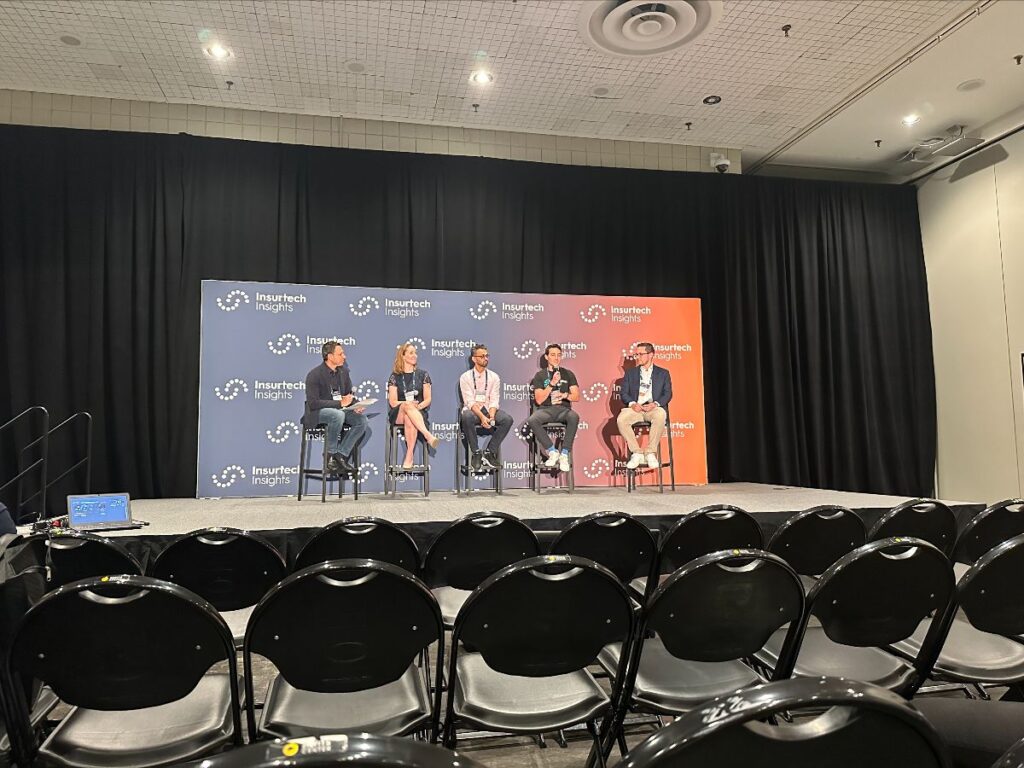FC Fintech Newsletter August 2023
08.01.2023 | By: Foundation Capital

Faster, Better, More:
An open letter to the Federal Reserve
Dear Board of Governors of the Federal Reserve System,
Congratulations on your recent launch of the FedNow System for instant payments! Government support has been an important component to the success of faster payments across the world, including India’s United Payments Interface (UPI), Brazil’s PIX, and the UK’s Faster Payment System. But merely lending your support is insufficient.
Faster payments have succeeded in these markets because they support new payment types (e.g. push payments), risk-free transactions via strong customer authentication, ubiquitous bank coverage, and minimal transaction processing costs. For Faster Payments to be successful, FedNow has more work to do.
Faster payments in most other markets are built on “push-style payments” and requirements around “Strong Customer Authentication.” This means users must authenticate with their bank, and take action to direct where they want their money to go. These two foundational elements of faster payments virtually eliminate transaction failure and fraud, further reducing the cost of payments for all parties. FedNow has the opportunity to deliver on this promise with the “Request for Payment,” however realizing this promise will require all participating banks not only to support this message type but also support RTP send (as opposed to just receive).
FedNow still has work ahead to reach ubiquitous coverage. Visa and Mastercard have done an incredible job at driving coverage and partnering with fintechs (ranging from PayPal to Uber) to solve for real-time disbursements — directly to users’ bank accounts.
Unfortunately, as many banks have tried to recoup the cost of upgrading core systems to support real-time payments, many fintechs see fees greater than push to card (which offers greater user coverage). Relative to TCH’s RTP Network and push to card, the FedNow System doesn’t improve coverage nor economics, neither does it create new use cases nor meaningfully increase transaction speed (relative to “push to card”). What it does do (if anything) is create confusion about which faster payment network to use.
The Federal Reserve has singular influence across the U.S. financial systems. We implore you, Board of Governors, to wield it. There are many dimensions and paths this should and could take, but here’s where we’d suggest starting:
- Mandate adoption across federally chartered institutions (including a process for Request for Payment)
- Create a Payment Initiation role à la the European Union to build consumer trust
- Set network pricing close to zero
- Create a revenue-share model akin to interchange to not just force but incentivize FI participation
Faster payments can have a truly transformative impact on an economy, even one as advanced as the United States. Your leadership in this process will be essential — let’s get to work!
Your hopeful collaborators,
Eric Morse (Cofounder, Push Cash)
Zach Noorani (Partner, Foundation Capital)
In Local News
Fintech x AI Summit
We gathered nearly a hundred of our fintech portfolio CEOs and executives for a virtual AI summit. Ten machine learning and artificial intelligence experts, nine from our own portfolio, shared with the larger group the myriad ways they are executing strategies to take advantage of both predictive and generative AI. We’ll be releasing a digest of key takeaways from the summit soon, so stay tuned in to our various channels.
Why the insurance industry desperately needs startups. Few industries sit on top of more data than the insurance industry, yet it has been among the slowest to embrace new technologies. But a new generation of insurtech startups is using machine learning and artificial intelligence to reshape everything from distribution and underwriting to fraud detection and servicing. In a recent blog post, Charles Moldow and Nico Stainfeld dove into the evolving insurtech landscape, with an eye toward the most promising neighborhoods. Read the post to see where we think AI will most impact insurtech — and if you’re building something new in this area, we want to talk to you!
The power of authentic personal stories. Charles was a guest on The Sure Shot Entrepreneur podcast. He opened up to host Gopi Rangan about his journey from analyst to entrepreneur to investor. Charles also talks about the role that VCs play in guiding founders. And he explains how, to the experienced investor, the nature of a founder’s personal life story can reveal what their unique abilities are.
Next-generation risk needs next-generation data. The FC Fintech earworm continues to burrow its way into listeners’ minds (and hearts <3). Next up, Nico was a guest on The Leadership In Insurance Podcast. He talks about Foundation Fintech’s early-stage focus and how to do that kind of investing right. Most of the conversation is about the broken insurance industry and the role that insurtech startups can play in fixing it.
Fintech is a meal best served at a well-regulated temperature. We recently hosted fintech events in New York, Tel Aviv, and Los Angeles, where we got acquainted with impressive fintech entrepreneurs across the Atlantic. Next stop: Las Vegas! We’ll be hosting a bash during Money20/20. If you’re attending the conference and want to join us for our event, fill out this form to request an invitation.
If you won’t be in Vegas but are a founder or executive who is interested in joining us for dinner and discussion about all things fintech, sign up here to be invited to one of our irregularly held, but deeply felt, series of private events.
The Company We Keep
Build credit while you bank. Current is making credit simpler, safer, and seamless. The company just launched the Build Card, a secured credit card that lets users build credit with every swipe, earn points, and more.
Barclays invests £3m into Trade Ledger. Looking to drive the growth of next-generation business finance through the implementation of Trade Ledger’s working capital orchestration platform, the bank has signed a three-year technology deal which will deliver fast, easy access to working capital for corporate clients.
Clivi raises $10m seed round. There are over 40 million adults with diabetes in Latin America. Mexico-based diabetes management startup Clivi wants to help control the disease through its comprehensive, technological and personalized approach to diabetes healthcare delivery. We’re proud to support the company’s mission through co-leading its seed funding.
Regulation v. Innovation. Hey, FC’s investors aren’t taking up all the spots on fintech podcasts — sometimes it’s our portfolio companies! Jesse Silverman, general counsel at Highline, gets behind the mic on the Fintech Business Podcast. Jesse was an attorney at the Connecticut Department of Banking and the Consumer Financial Protection Bureau before taking on legal roles at fintech startups. He discusses the lessons learned from his failed startup experiences and dissects why regulars seem to be trailing behind innovation in financial services.
Inaugural YC Top Companies List by Revenue. Y Combinator published a list of companies that have gone through the program that achieved the highest net revenue throughout 2022. As the announcement recognizing these companies reads, “in today’s uncertain economic climate, when prudence around fundraising and valuations make sense, it’s especially worth shining a light on revenue as the clearest signal of a startup’s success.” Congratulations to FC portfolio companies Nowports, Rappi, and Opensea for making the list!
Yo, Yo

Nico speaking on a panel at Insurtech Insights. He assures us the talk was in fact very well attended!
Published on 04.05.2023
Written by Foundation Capital

